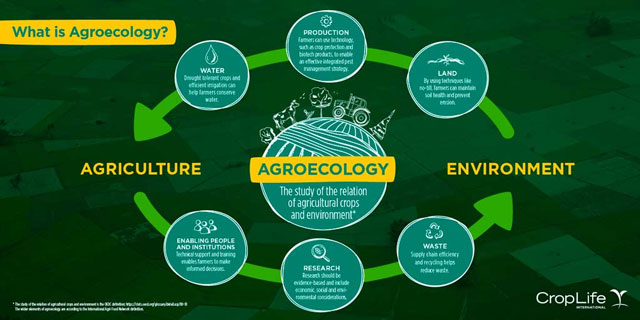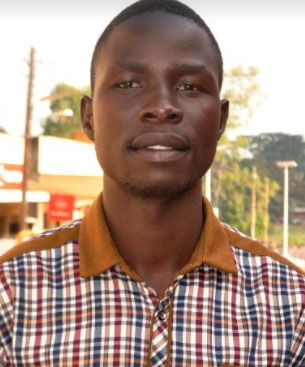
COMMENT | POLYCAP KALOKWERA | The global battle against climate change has made remarkable strides over the last three decades, marked by an enhanced understanding of climate science and the development of effective tools to address its causes and consequences.
As the 2023 United Nations Climate Change Conference (COP28) convenes in Expo City, Dubai, from November 30th to December 12th, 2023, discussions are amplifying around robust strategies for adaptation and mitigation. Central to these conversations is the critical role of agroecology in fortifying Africa’s resilience to climate shifts and ensuring food security.
COP28 stands as a platform uniting nations, experts, and stakeholders with the common goal of advancing the global agenda set by the Paris Agreement. This year, there’s a heightened focus on fortifying food systems’ resilience, building upon past successes, and steering toward ambitious measures to confront climate change challenges.
Dr Million Belay, AFSA General Coordinator and Panel Expert with IPES-Food, emphasizes the significance of agroecology within Africa’s cultural tapestry. He contends that ignoring agroecology sidelines not just Africa’s farmers but also the planet’s most vulnerable populations, disproportionately impacted by the climate crisis.
To him, Agroecology, deeply rooted in African culture, offers effective means to bolster resilience among small-scale farmers, pastoralists, and fishers, enabling adaptation to climate change. Tangible benefits like cost reduction, enhanced soil fertility, and promotion of diverse, healthy, and culturally appropriate food crops underscore its effectiveness.
“Sustainable food systems are imperative for adequate food production, waste reduction, and safeguarding human and environmental health, thereby fostering improved livelihoods and minimizing environmental consequences,” adds Dr Belay.
The African Union’s Agenda 2063 envisions inclusive growth and sustainable development for Africa, placing productive agriculture and climate resilience at its core.
Aligned with this vision, agroecology emerges as a promising solution, given its potential to enhance biodiversity, restore degraded land, and boost economic performance.
Recent FAO’s report
Recent findings from the Food and Agriculture Organization of the UN (FAO) highlight the urgent need for action. The report titled ‘The Impact of Disasters on Agriculture and Food Security’ stresses the escalating toll of climate-related disasters on global agriculture and food security. Disasters, increasing in both severity and frequency, jeopardize agrifood systems, compromising food security and sustainability.
Africa’s commitment to desirable farming methods is showcased by Uganda’s collaboration with Participatory Ecological Land Use Management (Pelum) Uganda. The development of the National Agroecology Strategy aims to regulate and ensure safe food production, emphasizing agroecological practices and organic farming from farm to market levels.
However, debates persist, exemplified by President Yoweri Museveni’s refusal to sign the National Biotechnology and Biosafety Bill in 2017 and 2021. While the National Agricultural Research Organisation (NARO) advocates for GMOs, Deputy Speaker Mr Thomas Tayebwa emphasizes improving indigenous seeds and breeds, cautioning against harming Ugandan product markets.
Critics like Peter Gubbles question the efficacy of technology-driven initiatives such as Agriculture Innovation Mission for Climate (AIM for Climate), advocating for agroecology as a superior alternative for climate change adaptation and mitigation.
Gubbles highlights the potential drawbacks of technology-driven solutions, foreseeing the displacement of small-scale farmers and perpetuation of industrial agriculture practices.
“Agricultural drones, vertical farming procedures, and high precision machines continue industrial agriculture and use of fossil fuels. This will distract and delay real climate action and push investment in entirely the wrong direction,” said Gubbles
The IPCC Sixth Assessment Report emphasizes Africa’s vulnerability and exposure to climate change, citing socioeconomic, political, and environmental factors contributing to the continent’s susceptibility.
Prof Felix Kanungwe Kalaba stresses inclusive and sustainable development as crucial to preventing millions from falling into extreme poverty due to climate change.
Yet, African climate-related research faces constraints, with a mere 3.8% of global funding allocated over three decades. Prof Kanungwe advocates increased funding for African partners, emphasizing the pivotal role of African knowledge in shaping adaptation strategies.
The recent UNEP’s Adaptation Gap Report 2023 underscores the world’s vulnerability to escalating climate impacts, citing underfinanced and underprepared climate adaptation efforts. Developing countries face a staggering adaptation finance gap, demanding urgent action to bridge this chasm through innovative financing mechanisms and international cooperation.
“Developing countries’ adaptation finance needs stand at 10-18 times higher than international public finance flows, an alarming 50% increase from previous estimates. And this gap is likely to be difficult to close, given that action is “lagging behind”, according to the UN. Estimated costs for adaptation in developing nations this decade are projected at US$215 billion per year, with an additional US$387 billion required annually to implement domestic adaptation priorities.
As COP28 looms, the imperative to prioritize agroecology in achieving the UNFCCC’s goals becomes undeniable. Agroecology, aligned with indigenous knowledge, offers a holistic approach to food production and security, promoting ecological sustainability, economic viability, and social justice.
In essence, prioritizing agroecology at COP28 stands as a crucial stride toward safeguarding Africa’s food security and fortifying its resilience against the relentless onslaught of climate change.
At COP27, Africa’s plea to prioritize agroecology in agricultural and adaptation discussions echoed amid minimal progress in securing adequate funding for vulnerable countries affected by climate disasters. The disappointment stemmed from unfulfilled promises of the $100 billion-a-year adaptation funding pledge by the Global North in 2016.
Dr Million Belay, AFSA General Coordinator and panel expert with IPES-Food, lamented the corporate influence at COP27, drowning out the voices of small-scale farmers. The failure to uphold commitments to the 1.5C target and reduce fossil fuel usage leaves Africa disproportionately bearing the brunt of the climate crisis.
Agroecology emerges as a pivotal strategy in aligning with Article 2 of the UNFCCC, aiming to prevent dangerous interference with the climate system while ensuring food production remains secure.
Defined as “sustainable farming that works with nature,” agroecology sidesteps chemical inputs, promoting natural processes to address environmental concerns associated with traditional agriculture.
Baliraine Hakim, Chairperson of the AFSA Board of Directors, emphasizes the resonance of agroecology with indigenous knowledge, making it a fitting solution for African farmers highlighting that organic farming based on ecological knowledge outperforms conventional methods.
“When farmers grow crops organically, they use technologies based on ecological knowledge rather than chemistry or genetic engineering,” Hakim said
Vicky Lukwiya, a small-scale farmer in Gulu District, attests to the effectiveness of agroecological farming principles learned from agricultural experts.
Her belief in embracing agroecology globally is rooted in its explicit goal of bolstering the sustainability of every part of the food system, incorporating ecological knowledge, economic viability, and social justice.
The trajectory of COPs has evolved since COP1 in 1995, becoming the pinnacle decision-making body to review and implement strategies outlined in the Convention. With COP28 on the horizon, the focus on agroecology emerges as an imperative step to fortify Africa’s climate resilience and ensure food security.
*****
 Polycap Kalokwera is a seasoned journalist with extensive expertise in Agriculture, Climate Change, Environment, Tourism and Wildlife reporting
Polycap Kalokwera is a seasoned journalist with extensive expertise in Agriculture, Climate Change, Environment, Tourism and Wildlife reporting
 The Independent Uganda: You get the Truth we Pay the Price
The Independent Uganda: You get the Truth we Pay the Price



